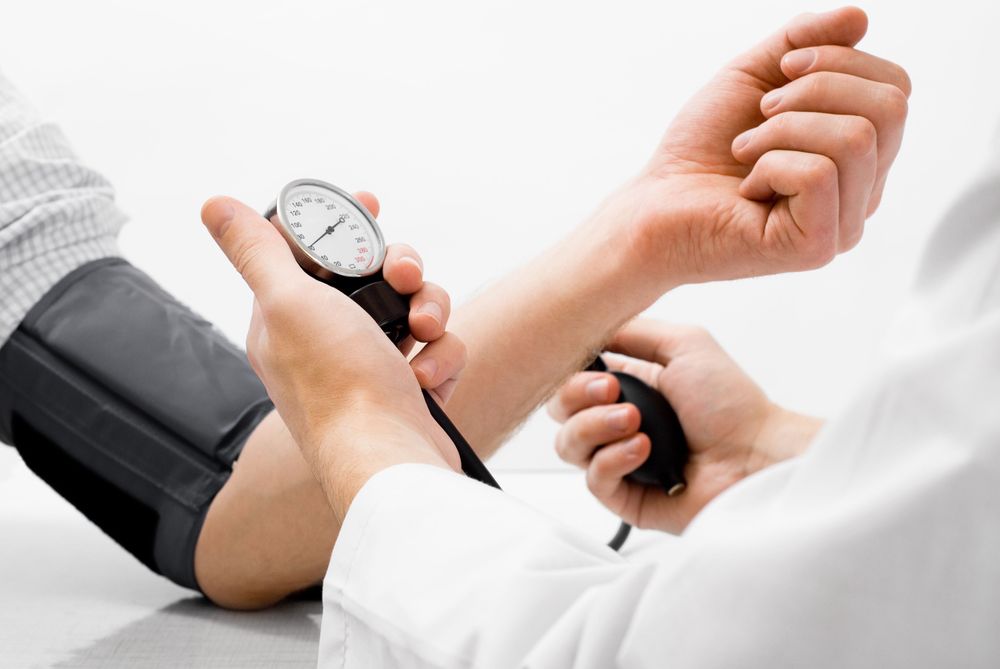
Does Infection Cause High Blood Pressure?
High blood pressure, or hypertension, is a common health condition that can increase your risk of heart disease, stroke and other serious complications. While it’s often linked to lifestyle factors like diet, stress and physical activity, some temporary causes - such as infection - can also play a role.
In this article, we explore the link between infection and high blood pressure, helping you understand how your body’s response to illness can impact your cardiovascular health.
How infections affect blood pressure
When your body fights off an infection - whether viral, bacterial or fungal - it triggers an immune response. This response can lead to inflammation, which plays a key role in how infections may affect your blood pressure.
Inflammation causes your blood vessels to narrow, making it harder for blood to flow and potentially raising your blood pressure. At the same time, your heart may work harder to pump blood to infected or inflamed tissues. These effects are usually temporary but can be more pronounced in people who already have high blood pressure or other underlying health conditions.
Infections can also cause fever, dehydration and changes in hormone levels, all of which may influence your blood pressure. Some medications used to treat infections - like decongestants or corticosteroids - can also contribute to raised blood pressure.
While not all infections will lead to high blood pressure, it’s important to be aware of this potential response, especially if you’re managing a chronic condition or are recovering from illness.
Common infections linked to temporary high blood pressure
Several types of infections have been associated with temporary spikes in blood pressure, particularly in individuals with pre-existing cardiovascular concerns. These include:
-
Respiratory infections – Conditions like the flu, pneumonia or COVID-19 can trigger a systemic inflammatory response that temporarily raises blood pressure.
-
Urinary tract infections (UTIs) – Though more commonly linked with fever and discomfort, UTIs can also contribute to short-term increases in blood pressure, especially in older adults.
-
Skin infections – Infections such as cellulitis may lead to increased blood pressure as the body reacts with inflammation and stress-related hormone changes.
-
Gum disease and oral infections – Chronic gum inflammation (periodontitis) has been linked to raised blood pressure, likely due to persistent low-grade inflammation in the body.
-
Sepsis – A severe infection that spreads through the bloodstream. While it may initially cause blood pressure to drop dangerously low, the early immune response can result in a spike before this crash.
In most cases, blood pressure returns to normal once the infection clears. However, repeated infections or poorly managed inflammation can put added strain on the cardiovascular system over time.
The role of inflammation and fever in blood pressure changes
When your body fights an infection, it triggers an immune response that includes inflammation and, often, fever. Both can have a direct impact on your blood pressure.
Inflammation is part of the body’s natural defense mechanism. It helps to isolate and eliminate harmful pathogens. However, inflammation also affects the blood vessels. During this process, your arteries may narrow and become less flexible, making it harder for blood to flow and causing your blood pressure to rise temporarily.
Fever can also play a role. As your body temperature increases, your heart works harder to circulate blood and regulate heat. This increased workload can lead to a short-term elevation in blood pressure, especially in individuals with underlying health conditions.
While these changes are typically temporary and resolve once the infection subsides, frequent infections or chronic inflammation can contribute to ongoing blood pressure issues.
How underlying conditions and medications play a role
If you're already managing a health condition or taking regular medication, an infection can affect your blood pressure in unexpected ways. Factors that can contribute include:
-
Existing health conditions – Chronic illnesses such as diabetes, kidney disease and heart conditions can make your body more sensitive to blood pressure changes during infection.
-
Common medications – Treatments like decongestants, NSAIDs (non-steroidal anti-inflammatory drugs) and steroids may all raise blood pressure while you're unwell.
-
Stress on the body – Fighting off an infection puts extra strain on your system, which can temporarily elevate your blood pressure - even if you're usually within a healthy range.
If you're unwell and notice changes to your blood pressure, particularly if you have an existing condition, speak to your GP for reassurance and support.
When to seek medical advice for blood pressure issues
It’s normal for blood pressure to fluctuate slightly during illness, but there are times when it’s important to speak to a healthcare professional.
You should consider seeking medical advice if:
-
Your blood pressure remains consistently high, even after recovery from an infection
-
You experience symptoms such as dizziness, headaches, chest pain or shortness of breath
-
You have a history of high blood pressure or cardiovascular issues and notice a sudden spike
-
You're managing a chronic condition like diabetes or kidney disease, which can be affected by blood pressure changes
-
You’ve had multiple infections in a short period, especially if each one impacts your blood pressure
Regular monitoring and early intervention are key. If you’re unsure about your blood pressure readings or want a clearer picture of your overall health, a full health assessment can be a helpful next step.
Monitor your blood pressure with regular check-ups
If you’re concerned about how infections - or other health changes - might be affecting your blood pressure, regular check-ups can help you stay in control.
At Bluecrest Wellness, our Full Body Health MOTs include a comprehensive blood pressure check alongside a wide range of other health markers, offering insights into your cardiovascular health, organ function, and more. All tests are carried out using the latest technologies, with appointments available at locations and times to suit you.
Each assessment comes with a detailed Results Report and 12 months of access to a 24/7 GP helpline - giving you the tools and support to make informed decisions about your health.
BOOK A PRIVATE HEALTH MOT TODAY


















